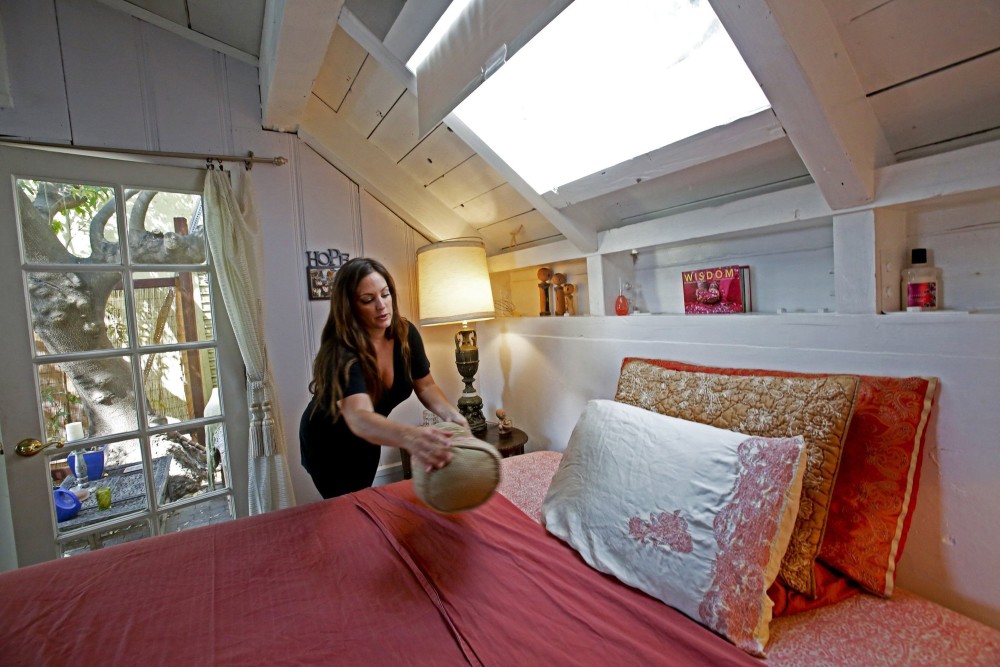By Marisa Kendall
The Mercury News
WWR Article Summary (tl;dr) The legal wranglings of Airbnb speak to the challenges cities face in regulating the home-sharing industry. In San Francisco, landlords who list homes or spare rooms on Airbnb and other such sites must register with the city, a process that includes making an in-person appointment, completing an application, paying a $50 fee and obtaining at least $500,000 in liability insurance.
SAN FRANCISCO
As cities around the country attempt to regulate the growing home-sharing industry, Airbnb is going on the offensive with a barrage of lawsuits intended to kill local rules it doesn’t like.
Airbnb has sued California’s San Francisco, Santa Monica and Anaheim over ordinances that force the company to remove or refuse bookings that violate city laws, and it has threatened to sue the state of New York if a similar bill there is approved.
The company’s willingness to throw the first punch in these cases highlights the 8-year-old startup’s aggressive stance in warding off efforts to limit its explosive growth.
“It’s bold,” said Joshua Davis, associate dean for academic affairs at the University of San Francisco School of Law. “But if it looks like it’s really successful, others may follow. Uber certainly has the resources to get aggressive in this way.”
The major players in the on-demand industry are no stranger to courtroom battles and confrontations with regulators, but they most often find themselves playing defense. Ride-sharing giant Uber, which is fighting dozens of lawsuits in courts across the country, rarely has made the first move in those cases.
As cities struggle to regulate the booming home-sharing industry, some require landlords to register before renting their homes, while others prohibit certain short-term rentals altogether. Airbnb, valued at $30 billion and with more than 2 million rental listings worldwide, argues it can’t be required to enforce these rules and says the company is not liable for the postings landlords publish on its site.
“While we have attempted to work with the city on sensible, lawful alternatives to this flawed new ordinance,” an Airbnb representative wrote in a blog post when the company sued San Francisco in June, “we regret that we are forced to now ask a federal court to intervene in this matter. This is an unprecedented step for Airbnb, and one we do not take lightly, but we believe it’s the best way to protect our community of hosts and guests.”
Airbnb’s litigation campaign already has seen results. The lawsuit against San Francisco convinced city supervisors to amend their home-sharing ordinance last month. Now instead of penalizing Airbnb for postings that violate the city’s short-term rental ordinance, which requires landlords to register with the city, supervisors intend to penalize Airbnb each time it books a stay in a home that isn’t registered. But the change wasn’t enough to placate the home-sharing company. Airbnb doubled down on its attack last week, filing an amended complaint that challenges the new ordinance.
This time, the city is standing its ground.
“We are not going to be intimidated by Airbnb. We never have been,” said Supervisor David Campos, one of the ordinance’s sponsors. “And we know that we are in the right here.”
Anaheim folded under pressure from Airbnb’s lawsuit last month. In a letter to Airbnb’s lawyers, the city attorney promised not to enforce an ordinance that would have held Airbnb liable for publishing or failing to remove postings for rental homes without city permits. In response, Airbnb dropped the lawsuit.
The ordinances speak to the challenges cities face in regulating the home-sharing industry. In San Francisco, landlords who list homes or spare rooms on Airbnb and other such sites must register with the city, a process that includes making an in-person appointment, completing an application, paying a $50 fee and obtaining at least $500,000 in liability insurance. But few landlords bother. A city study released in April found that out of 9,448 people renting their homes on Airbnb, just 1,647 had registered.
This summer the city attempted to force Airbnb and other home-sharing companies to assist in enforcement, and Airbnb struck back with the June lawsuit. Violators of the new home-sharing ordinance could face fines of $1,000 per offense and up to six months in jail if they fail to comply, potential penalties San Francisco has suspended while the litigation is ongoing.
Airbnb claims the San Francisco ordinance and others like it violate the federal law that gives online platforms such as YouTube, Amazon, Yelp and Facebook the freedom to publish third-party content without fear of being sued over potentially objectionable posts. The home-sharing company also argues the ordinance violates its First Amendment right to commercial speech.
The case largely comes down to whether the judge views Airbnb as an online marketplace that merely publishes third-party ads written by landlords, which would be a win for Airbnb, or a retailer that rents properties to travelers, said Eric Goldman, an internet law professor at Santa Clara University School of Law.
Goldman, who joined a brief the Electronic Frontier Foundation filed with the court in support of Airbnb, said unless Airbnb can squash these types of regulations, it may eventually find it can no longer operate in many key cities.
“If Airbnb loses the lawsuit, it will be open season for every regulatory body to tell Airbnb how it should run its business,” Goldman said. “That includes thousands of cities and counties.”














































































































































































































































































































































































